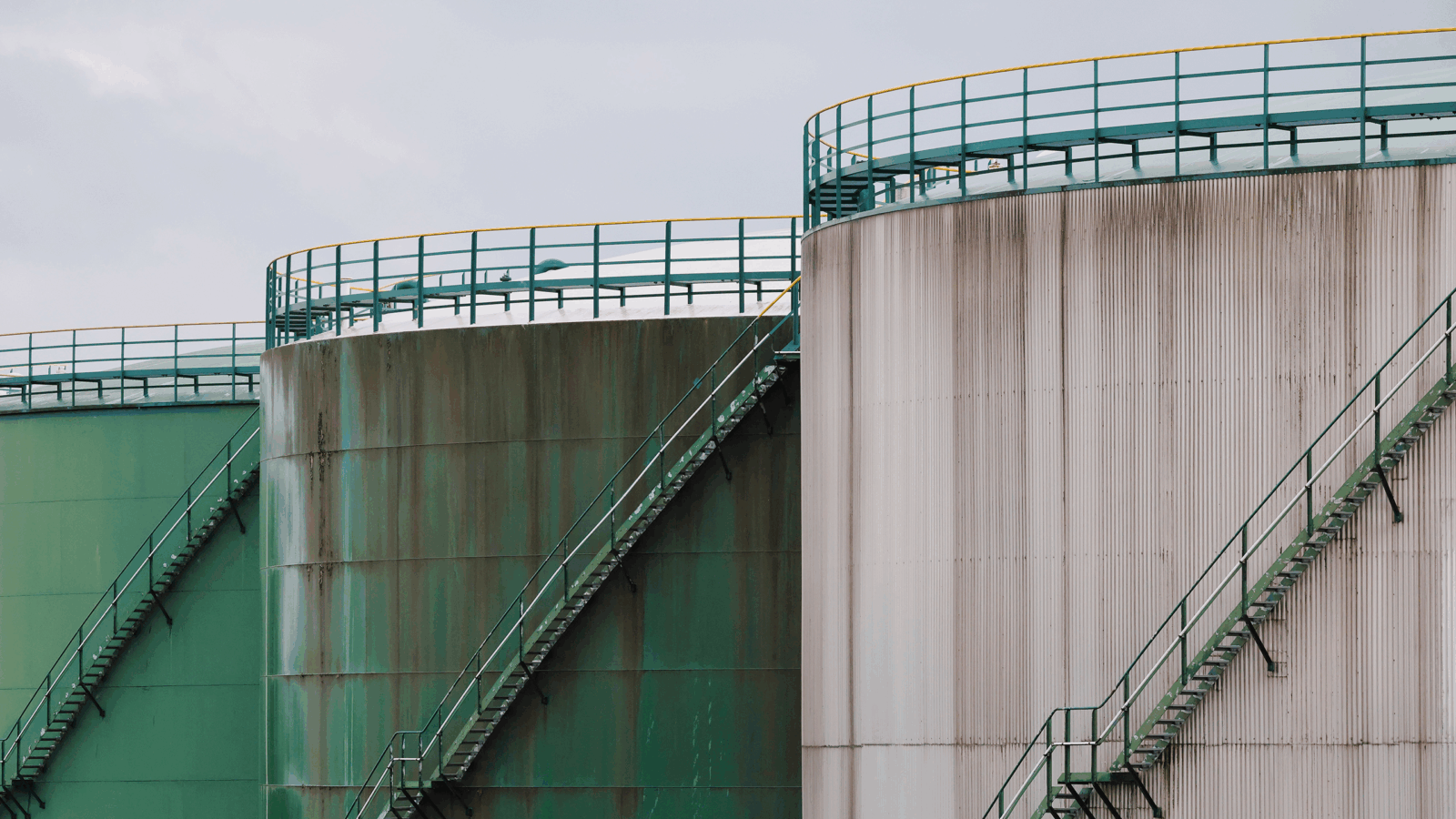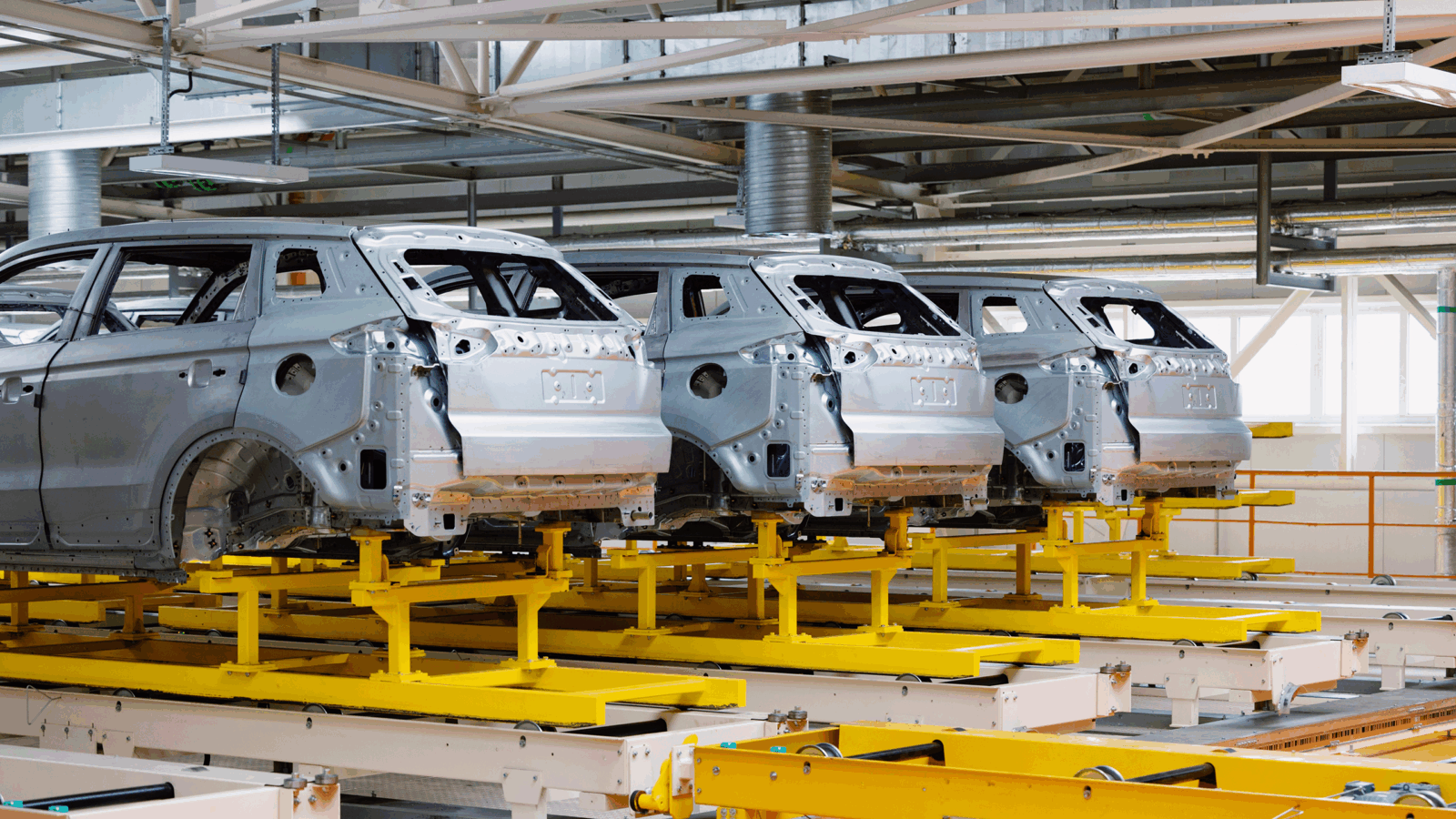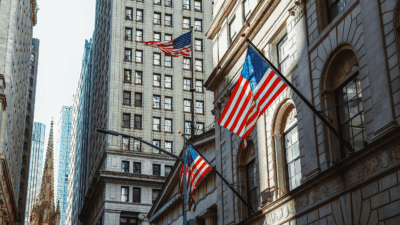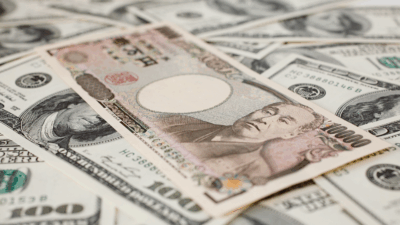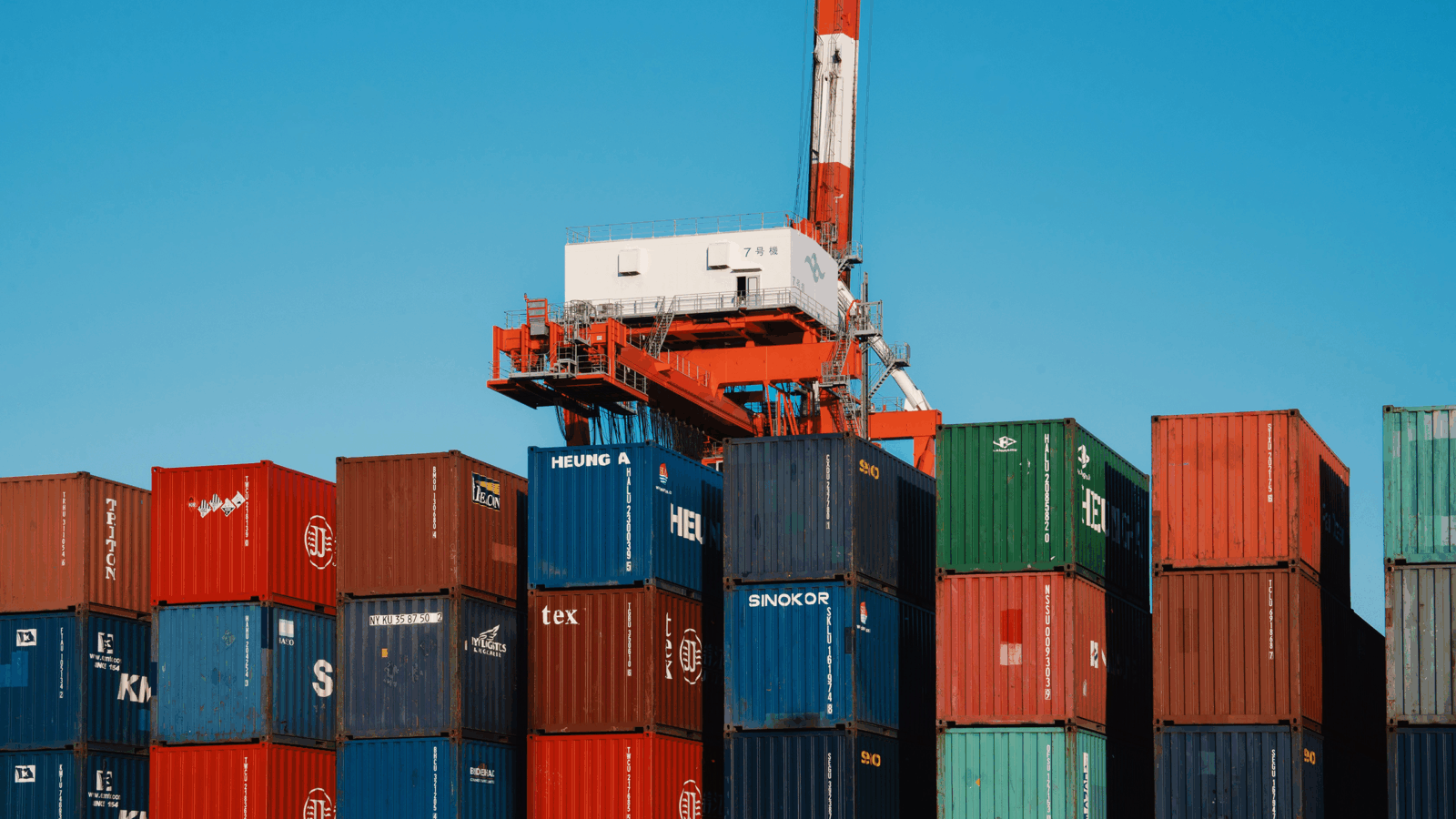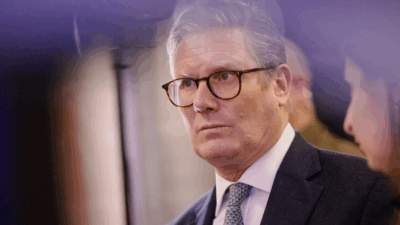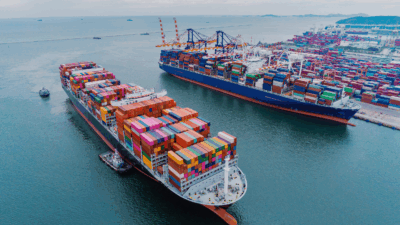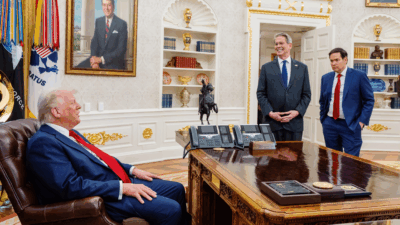Russia’s Economy is Buzzing from War Spending
The International Monetary Fund boosted its 2024 expectations for the country’s economic growth.
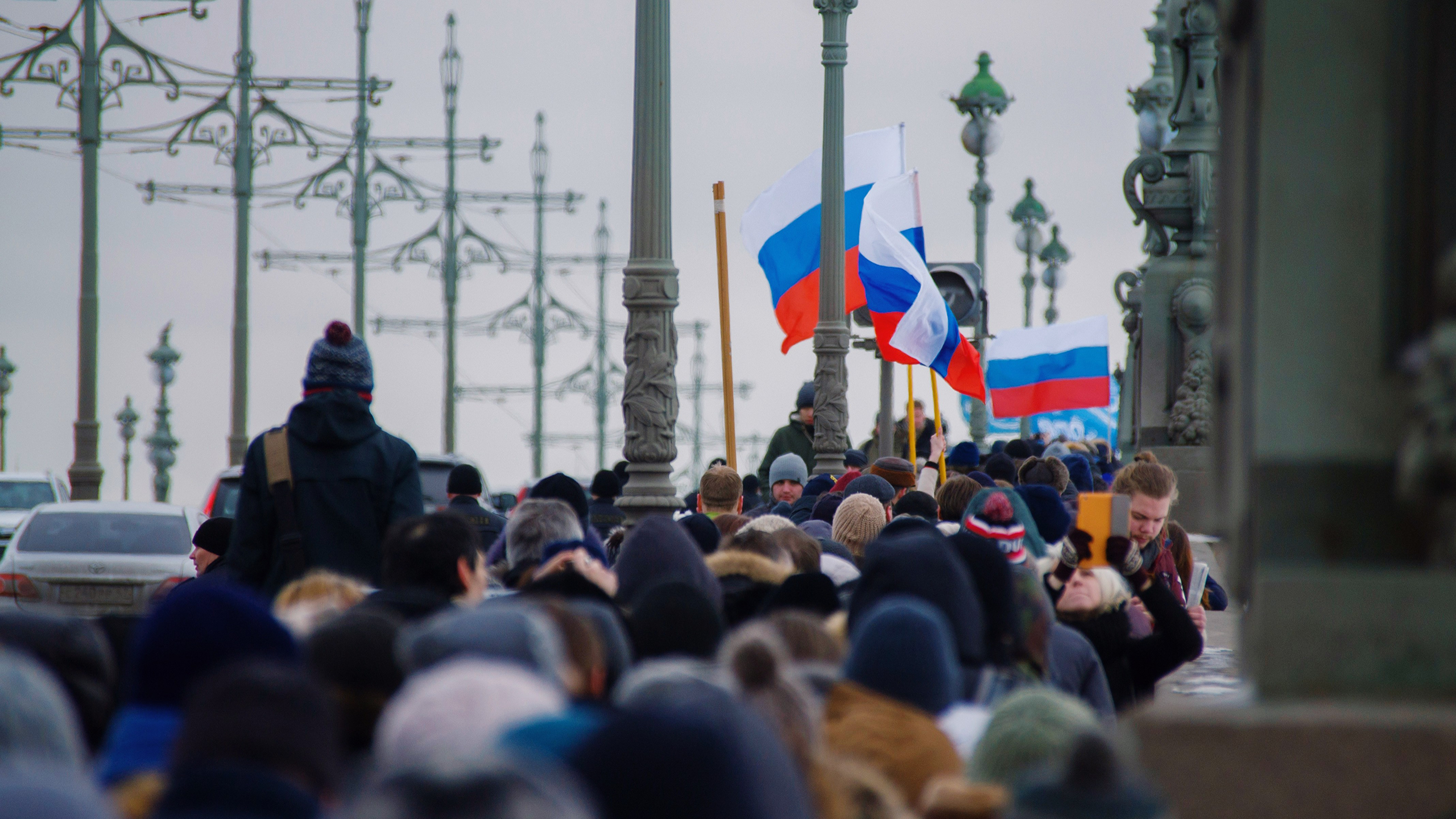
Sign up for smart news, insights, and analysis on the biggest financial stories of the day.
War? What is it good for? Absolutely nothing. Except for the economy, even Russia’s.
Two years into Vladimir Putin’s invasion of Ukraine, full-scale war is bearing fruit for the Russian economy. On Tuesday, the International Monetary Fund upgraded its 2024 outlook for the nation, forecasting its GDP to increase by 2.6% this year — good for double previous projections and a larger upward revision than any other country in the report. Unfortunately, the cost has already included 315,000 dead or injured Russian soldiers, according to a recently declassified US intelligence report.
Sanctions Fall Short
Much of the Western world slapped Russia with a series of steep sanctions after the invasion, with restrictions in particular placed on Russian oil exports. But Putin’s aggressive war-time spending has stimulated the economy nonetheless, propping up commodities prices and making up for shortfalls in energy-related export revenues.
That was enough for most economists to gauge Russia’s GDP growth last year at around 3% — as well as for the IMF to increase its expectations for Russia’s economy in the remaining 11 months of 2024:
- The IMF’s projection of 2.6% GDP growth this year comes just after the organization had predicted a slightly more anemic growth rate of just 1.1% in October.
- It’s also a projection more bullish than many Russian insiders have made. In November, Russia’s central bank predicted growth of up to just 1.5% this year, while the economy ministry has pegged the figure at 2.3%.
“It is definitely the case that the Russian economy has been doing better than we were expecting and many others were expecting,” IMF chief economist Pierre-Olivier Gourinchas told the Financial Times.
New World Order: In fact, the IMF’s rosy outlook extends beyond Russia. In its report Tuesday, the organization also upgraded its outlook for both the US and China, pointing to inflation’s faster-than-expected cooling. Gourinchas told reporters it is evidence that “the chance of a ‘soft landing’ has increased.” He also added that “the biggest global election year in history” — with roughly half the world’s population voting in major elections across roughly 64 countries — could boost economic activity. Political wars are good for economies, too, we take it.
